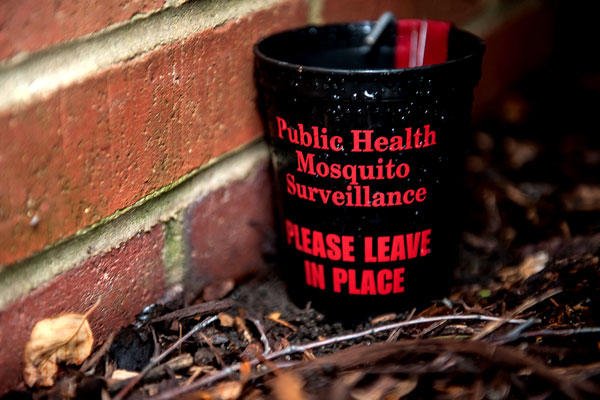The number of Zika virus cases among military personnel has continued to rise, with 14 more cases reported in recent weeks to increase the total number from 41 to 55, a Pentagon spokesman said Friday.
In addition, 12 military dependents have been diagnosed with Zika, an increase of five cases over the seven among military dependents reported earlier this month.
All of the cases among military personnel and dependents were "travel related," meaning that the virus was not contracted within the continental U.S. since testing began earlier this year, the spokesman said.
The number of cases in the military could be much higher. Only about 20 percent of people infected with Zika have symptoms, which can include fever, rash, joint pain, pink eye and headache, according to the Centers for Disease Control.
Earlier this month, the Defense Department said that one of the service members with the Zika virus was pregnant. Zika has been linked to birth defects such as microcephaly and a study released in May by the CDC estimated that the fetuses of mothers infected with Zika in their first trimester face up to a 13 percent chance of being born with severe brain abnormalities.
The rise in Zika cases among military personnel came amid heightened concerns over the spread of the virus linked to bites from the aedes aegypti mosquito found in many states.
Florida officials and the CDC said Friday they were investigating reports of locally transmitted Zika virus cases in Miami Beach. The suspected Zika virus zone in Miami Beach involved about 1.5 square miles from 8th to 28th Streets in the main tourist area.
In response, the CDC advised that "pregnant women should avoid travel to the designated area of Miami Beach, in addition to the designated area of Wynwood, both located in Miami-Dade County, because active local transmission of Zika has been confirmed.
"Pregnant women and their sexual partners who are concerned about potential Zika virus exposure may also consider postponing non-essential travel to all parts of Miami-Dade County," the CDC said.
"We're in the midst of mosquito season and expect more Zika infections in the days and months to come," CDC Director Dr. Tom Frieden said. "It's difficult but important that pregnant women make every effort to avoid mosquito bites and avoid going to areas where Zika is spreading."
Zika infections have been reported in more than 70 countries. Thus far in the U.S., more than 1,650 Zika infections have been reported, according to the CDC.
Earlier this year, the Defense Department ordered heightened monitoring for the aedes aegypti mosquito at military installations in 27 states and the District of Columbia in response to the Zika crisis. The Pentagon called for monitoring, trapping, testing and eliminating water sources as breeding grounds.
The Defense Department also offered to relocate family members of active-duty personnel and civilian employees assigned to regions at higher risk for Zika.
Earlier this month, government-funded human trials began on a possible Zika virus vaccine. "We are right now in a race against time to get the best vaccine," said Dr. Anthony Fauci, head of the National Institute of Allergy and Infectious Diseases.
However, Fauci has repeatedly warned that the ongoing disputes between Congress and the White House over funding for development of a Zika vaccine could delay the research.
Doctors at the Walter Reed Army Institute of Research have also been working separately on a Zika virus vaccine. In June, the Walter Reed doctors published a study in the journal Nature in which they said that mice developed immunity to the Zika virus after injection with a purified inactivated virus vaccine, called ZPIV.
The vaccine was undergoing more testing and human trials could begin later this year, Lt. Gen. Nadja Y. West, the Army Surgeon General, said at a breakfast with reporters Thursday. West said that the funding debate hampering civilian Zika vaccine research would not affect the work at Walter Reed.
--Richard Sisk can be reached at Richard.Sisk@Military.com.





























